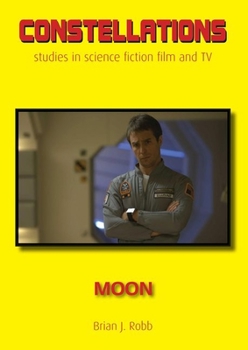Moon
Select Format
Select Condition 
Book Overview
One of the most acclaimed debut features of this century, Moon (2009) tells the superficially simple story of Sam Bell (Sam Rockwell), who mines Helium-3 on the dark side and comes face to face with his doppelg nger. Out of this scenario, director and co-writer Duncan Jones explores ethical questions that can be examined for philosophical depths, calling back to such 1970s and 1980s science fiction films as Silent Running (1972), Soylent Green (1973), Logan's Run (1976), Alien (1979), and Outland (1981). Just as the moon so often visible above Earth has been interpreted in a variety of ways throughout human history, so the film Moon is open to various readings and interpretations.
Brian Robb's Constellation volume begins by covering the early filmmaking and influences of director Jones, and briefly look at past depictions of the moon in science fiction cinema. He goes on to provide a production history of the film, with a particular focus on how the constraints of British low-budget filmmaking inspire creativity, and how the creative team envisioned the future. Subsequent chapters examine questions of isolation and identity as raised in Moon - what defines a human being? How does differing experience change each of the Sam Bell clones? - and issues of theology by examining notions of curiosity and investigation. Finally, the critical reception of Moon is will be examined, with a consideration of the way film's themes were further developed and extrapolated upon in Duncan Jones' next film, Source Code (2011).





